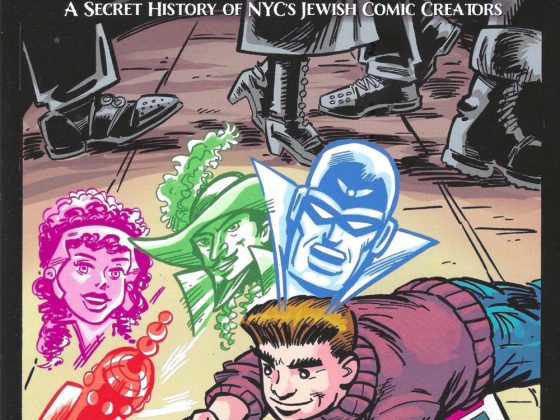My favorite meal with Stan was at Hamburger Hamlet in LA, probably in the early 2000s…his public ‘avatar’ wasn’t on that evening, not even to charm the waitstaff, for whatever reason. He said that Marvel was looking to have him do more editorial work again, and then said “What does an editor do these days?”
“Well, Stan, to all intents, I haven’t been an editor almost as long as you haven’t,” I replied, “But I think the heart of the job is still the same–to get the best work out of the creative people.”
I talked about the different ways different people used to accomplish that goal, and we warmly remembered Archie Goodwin–the best editor I never could manage to learn from, because so much of his technique seemed to be in his personal style of relating to people.
“But Paul, I wasn’t much of an editor. I wrote almost all the stuff myself,” Stan said.
“I worked with all your artists, Stan, and no one ever got as great work out of them as you did. Never mind Jack and Steve, you got the best work of their lives out of Don Heck and Dick Ayers. Good guys, incredibly professional, but you got so much more out of them than I did.”
Compre medecina online con confianza. Brindamos a nuestros clientes un servicio de altura. Aproveche nuestros descuentos de gran alcance y compre medicinas a precios bajos https://farmafelicidad.com. Disponemos de entregas gratis en todo el mundo.
He smiled, and the ‘avatar’ started to come on. The Stan Lee we know from the stage said, “Every time I sent Dick a script–he was doing some western, I don’t remember what it was–he’d call and say “What do you want me to do with this one, Chief?'”
“And I’d say, it’s a western, Dick, I want to see the spurs shining and hoofs flashing…” and Stan never got to finish, because I was laughing out loud.
“That’s how you did it, Stan, that’s how you were a great editor. Dick and I got along great, but our conversations were his ticking off pages per day in his little date book, figuring out when he’d be in for the next job. He counted on me to keep him busy, and I did, but you got him excited.”
Stan has a complex legacy, with his own massive creativity clouded by unresolvable debates over the relative value of collaborators’ contributions, actions he might have taken in a more perfect path to help them achieve more economic rewards, and his statements about their collaborative process. But as someone who knew and worked with pretty much all of them, I believe Stan was the irreplaceable catalyst, without whom the magic that was that first decade of Marvel Comics would never have happened, and perhaps neither would have the changes that spread through the comics field from there.
